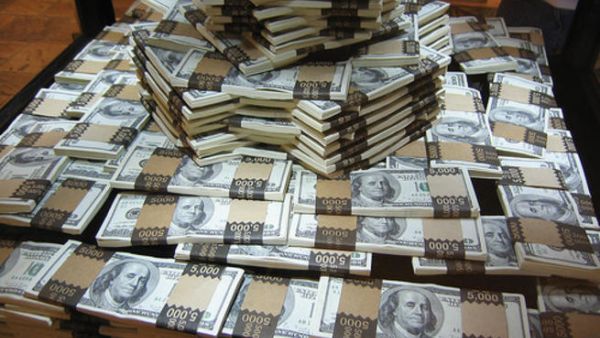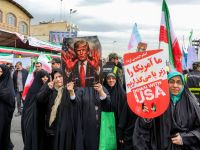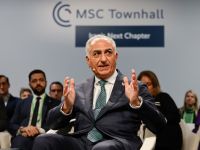Lebanon will continue to update measures and laws to combat money laundering and terrorist funding, the head of the Union of Arab Banks Joseph Torbey said Wednesday. Speaking at the opening conference on money laundering, Torbey told participants that Lebanon has demonstrated its ability to fight money laundering and terrorist funding, and has also kept abreast with the latest international rules and regulations on this subject. “But despite all the efforts exerted by Lebanon in this regard, it [was] not spared from the malicious rumors that aim to raise suspicion on the Lebanese banking system,” Torbey argued.
Citing an example, Torbey noted that some news media alleged that $20 billion of Syrian funds and deposits had been deposited in Lebanese banks. “The reality is that no such funds or deposits were transferred from Syria to Lebanon due to the restrictions imposed on the transfer of funds from abroad, especially at this critical time [in Syria],” Torbey explained. He added that the Lebanese commercial banks, at the request of the authorities, do not accept any cash deposit that exceeds $10,000 unless the depositor has proper documents about this deposit. “Above all, total bank deposits up till now reached $4 billion and this proves that claims of tens of billions of dollar deposits are not true,” Torbey said. He emphasized that the total deposits in foreign currency in Syria are far below the $20 billion which allegedly entered Lebanon. Torbey added that some of the new laws concerning money laundering now involve tax evasion, bribery and drug money.
The Central Bank and the financial authorities helped to set up the Special Investigation Commission which is mainly responsible for monitoring any suspicious financial deals in Lebanon. On April 20, 2001, the Lebanese Parliament passed Law 318 on fighting money laundering. This law criminalizes the laundering of proceeds of crimes related to narcotics growing, manufacturing and trading, organized crimes, terrorist acts and terrorist financing, illegal arm trade, stealing or embezzling public or private funds or their appropriation by fraudulent means and counterfeiting money or public credit instruments.
They said law defines money laundering operations and stipulates fines and imprisonment sanctions imposed on such operations. Law 318 established the Special Investigation Commission for fighting money laundering as an independent legal entity with judicial status at Banque du Liban. The Commission has the exclusive right to lift banking secrecy for use by competent judicial authorities and the Higher Banking Commission.
The SIC, Lebanon’s Financial Intelligence Unit, receives, analyzes, investigates suspicious transaction reports and ensures compliance of banks, financial institutions and other reporting entities with pertinent AML regulations. Since its creation, the SIC reported dozens of suspicious money laundering cases in Lebanon and has asked the authorities to lift the banking secrecy on some of these banking accounts.
Lebanese officials and the Central Bank insist that they are fully complying with the conditions of the anti-money laundering activities. They also point out that the Lebanese authorities have positively responded to inquiries and requests from the United States and other countries on any suspicious money laundering activity in Lebanon.
Experts say that Lebanon is keen to protect the Lebanese banking system and the cherished banking secrecy law because they are the main driving force for the local economy.








